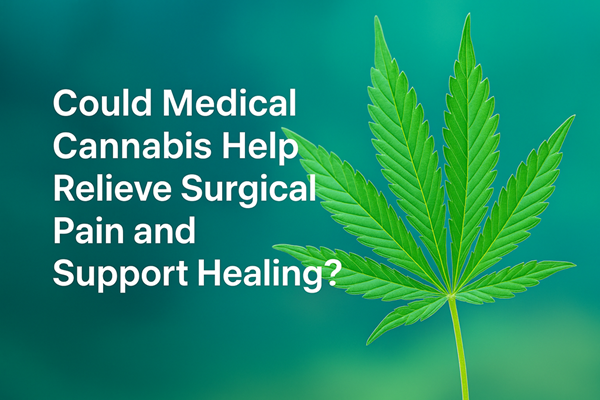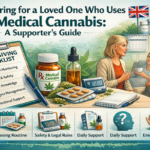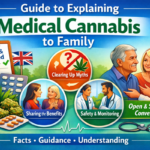Postoperative Recovery: Could Medical Cannabis Help Relieve Surgical Pain and Support Healing?

Recovering from surgery can be tough. Pain, swelling, sleepless nights and the fog of strong opioids often make the early days miserable. For some patients, medical cannabis is emerging as a gentler alternative or complement to standard pain relief, and while the science is still catching up, many people are asking: could cannabis-based medicines make recovery easier?
Why look at medical cannabis after surgery?
Traditionally, post-op pain is managed with a mix of paracetamol, NSAIDs and opioids. These do work, but they come with well-known downsides: stomach irritation, constipation, grogginess and, in the case of opioids, risk of dependency.
Cannabis-based medicinal products (CBMPs), which can contain CBD (cannabidiol), THC (tetrahydrocannabinol) or both, have been studied in chronic pain, anxiety, and spasticity. Now researchers are starting to look at whether they might also ease post-surgical pain, reduce reliance on opioids, and improve overall recovery.
What does the research show so far?
Relief in the first 48 hours
One of the clearest positive findings comes from a study on shoulder surgery. Patients who received CBD through a buccal spray (absorbed inside the cheek) reported lower pain scores and higher satisfaction in the first 24–48 hours compared with placebo. One year on, no safety issues were found.
This suggests cannabis could play a role in managing the worst of the pain straight after surgery, when it matters most.
Reducing opioid use
Large UK patient registries (like Project Twenty21) have shown that people prescribed cannabis for chronic pain often report a sharp drop in daily opioid use. Many patients say they feel more in control of their recovery and less dependent on heavy painkillers.
While post-op trials are still limited, the trend is encouraging: cannabis may allow patients to use fewer opioids without losing pain control.
Calming inflammation and stress
Beyond pain, cannabis compounds interact with the body’s endocannabinoid system, which plays a role in inflammation, sleep and mood. Although hard proof in surgical recovery is still lacking, patients often describe better sleep and lower anxiety when cannabis is part of their treatment plan, two factors that definitely help the body heal.
Patient experiences
Real-world stories are often what bring the research to life.
- Tom, 52, shoulder repair: After struggling with nausea and drowsiness from opioids, Tom was prescribed medical cannabis. He said the first two days were “far more manageable” and he was able to begin gentle physio sooner than expected, without feeling knocked out by strong painkillers.
- Rachel, 34, hysterectomy: With medical cannabis as part of her recovery, Rachel found she could cut her opioid tablets in half. “I actually felt awake enough to talk with my kids instead of just sleeping the days away,” she explained, adding that it gave her steady relief without the same heavy side effects.
- David, 61, knee replacement: Using medical cannabis helped David get consistent sleep and manage his daytime pain without relying solely on opioids. “Not a magic fix, but it made the recovery grind far less grim,” he said.
Thinking about cannabis after surgery: practical advice
If you’re curious, here’s what you need to know in the UK:
Be open with your doctors
Always tell your surgeon and anaesthetist if you’re using cannabis (medical or otherwise). It can affect anaesthesia, blood pressure, and how painkillers are dosed. Don’t worry about judgement, your safety depends on transparency.
NHS vs private prescribing
- On the NHS, cannabis prescriptions are currently limited to certain rare conditions (like severe epilepsy, MS spasticity, or chemo nausea). Post-op pain isn’t covered.
- Private cannabis clinics are the realistic route. A specialist doctor can prescribe CBMPs if other treatments haven’t worked well for you. Prices vary, but medicines usually come as oils, capsules or sprays, not something you smoke.
The bottom line
Medical cannabis is not a magic bullet, and it won’t replace rehab or wound care. But the evidence so far suggests it can reduce acute post-op pain for some patients, may lower the need for opioids, and often helps with sleep and overall comfort during recovery.
In the UK, access is mostly through private clinics, and any decision should be made with your medical team. But for patients who want an alternative to heavy opioids, cannabis could well become an important option in the recovery toolkit.


